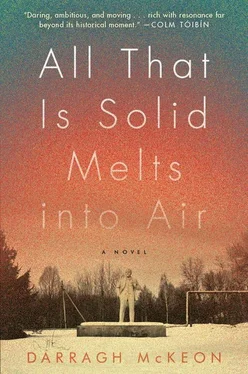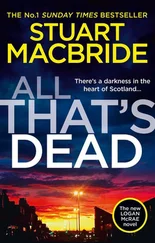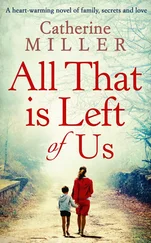“The place in this photograph. Is it near here?”
“No. It’s in America.”
“You have been there?”
“No.”
“Then why do you have it?”
Grigory looks at the image again. It has become so fused with the features of the room that he has almost forgotten it, a last remnant of a previous passion, the moon hanging serenely in a clear sky, all features of the landscape below placed in relation to its delicate curve.
GRIGORY’S FIRST CAMERA, at fourteen, marked the end of his childhood. He divided his youth by this distinction: pre-camera/post-camera. At fifteen, an elderly man in their building donated some darkroom chemicals to further Grigory’s passion and, in retrospect, this marked another stage in his maturity. He acquired some black foil at a market and set up his darkroom in the communal bathroom. A tiny room, seven feet by four feet, and traced a line of foam sealant around its perimeter, keeping out the slivers of light that would otherwise stream upwards from the irregular meeting points of the ancient wall and floor.
The room became a womb to him. Grigory would work in the middle of the night, when no one would be knocking on the door, the perfect darkness more enveloping than the sleep from which he had emerged. He knows the contours of that space more intimately than those of a lover, the positioning of the bathtub and sink, the small medicine cabinet with its mirror, the equipment tray he would carry from his room, rattling gently with bottles and beakers, placing it in exactly the same position each evening, so he could find the necessary materials in the darkness.
At the end of their street was a park with a copse of beech trees, which taught him about colour. So many images of the beech trees piled high under his bed, separated by thin sheets of cardboard. The depth and range and personality of colour. Day after day, throughout the summer and winter, he would take his camera to the trees and observe, over the passing weeks and months, how their colour adjusted according to time and light and weather, how purples would transform themselves to scarlet and orange, yellow and off-white, and the thousands of gradients between each shade.
GRIGORY LOOKS at this American landscape now, frayed around the edges, a crease line from the magazine’s spine bisecting the mountains, and turns to the boy and feels envious, despite the tragedy of his life, of the boy’s ability to view the world through inexperienced eyes.
“I brought it from home. I don’t know why I have it. Perhaps it reminds me that I have a small life. Does that make sense to you?”
The boy nods. “Yes.”
“I used to take photographs. When I lived back in Moscow. They were all of buildings and people. Full streets. At night the sky was orange. I like the deep, black sky in this photograph. In my apartment, I would look at it and feel like making a campfire in the middle of my living room.”
Artyom looks at the picture again and wonders what a photograph of their home would look like now. He knows all the stories. His father, while he could still speak, told him that everything around their home had turned white. Not as in winter with snow covering all things, but as in summer, with the grass high, leaves quivering in the breeze, flowers blooming in their fullness, but everything drained of colour.
If this same photographer had wandered into their homeland, would there be anything left to photograph? Only two shades left in that place. The dark sky and the white land, white as the clouds that streamed over this landscape in America. Artyom thinks of the tyre hanging from the oak tree outside their house, swinging lonely. Every part of his home, everything he touched, saw, put his weight upon, is underground. But he can’t imagine this, his mind isn’t able to erase all that he has known. When he finally goes back he knows he’ll feel like a cosmonaut walking on the moon.
IN MINSK, when they left his aunt Lilya’s building, they had no energy or desire to walk to the bus station, to wait in line and sign forms and be directed to a shelter which, they knew from the direction of the walking crowds, was at the other side of the city. Standing outside the apartment block, they could hear chaos still hanging in the air. Artyom’s mother walked as if carrying a weight—the way she clung to Sofya—and all three of them wanted, to their core, a place to lie down, somewhere they could close their eyes. They could face whatever would come tomorrow. They just couldn’t face it at that moment.
The weather was warm enough to sleep outdoors, but they would be exposed to whoever passed by. Artyom decided it would be too much of a risk and, besides, his mother needed some privacy, needed some time to take in her rejection.
Opposite them was a long row of metal shelters, low sheds made of the same tin sheeting as the roof of their izba. Each shelter was sealed with a padlock, and some had pieces of furniture outside them or other castoffs: a wing mirror from a truck, a bicycle seat with a bent shaft. Artyom looked around to see if anyone was watching and then walked the whole line of them, pulling at each lock, until finally, after covering fifty metres, finding one that wasn’t closed properly, he pulled open the door, hunched over, and walked inside, bumping into unknown objects. He stretched up until his fingers located the cable, which he traced to a switch at knee level just inside the door. He flicked it on.
There was a line of old paint pots sitting along the tin wall and, now that he could see them, he could also smell their biting chemicals. In the centre, there was a space large enough for them to lie down, and he could make out thick rolls of dense grey material, stiffer than cloth, which stood on end, dry to touch. It would be enough.
He stepped outside and beckoned his mother and sister, and when he saw Sofya wave back he ventured inside again and set about laying the material down on the metal floor.
When his mother arrived, she said the material was “undercarpet” and Artyom didn’t know what this was and when she explained Artyom found such a thing hard to comprehend, people who were rich enough to put carpet under more carpet.
He took the jacket from the door and put it on his mother. She tried to refuse, to give it back to him to wear instead, but Artyom and Sofya insisted and his mother didn’t have enough will to resist. They cleared their pockets of whatever food they had left—a few carrots and some ends of bread—and they ate quietly, a grim picnic, until Sofya said, “What is that smell?” and they scrunched their noses up and, it was true, there was a sickly sour smell. Like meat gone bad. Artyom’s mother lifted her armpits and smelled underneath them and folded her mouth in disgust and Artyom couldn’t help but laugh at this; his mother was always so insistent on cleanliness. There were so many nights after pig feeding that he came home and she sent him to the well and supervised from the window as he scrubbed himself. He laughed and Sofya laughed too and leaned into their mother and sniffed her armpits, like a runt looking for a nipple, exaggerating the action, and Artyom did the same and his mother laughed then too, and she wrapped her stinking arms around them, pressing their faces to her, and they giggled some more and then relaxed into her, disregarding the smell, feeling protected. Sleep came quickly.
When Artyom woke, the light was off and the door open, allowing in a vertical stripe of grey light from the morning sky. He saw a figure standing there and sat up suddenly and shook his mother, and the figure said, “Hello.”
His mother sat up too and the figure said, “I’m going to turn on the light. Don’t be shocked.”
Sofya woke with the light, pushing herself upwards unsteadily by her arms, the way Artyom had seen newborn calves assert themselves into the world.
Читать дальше












